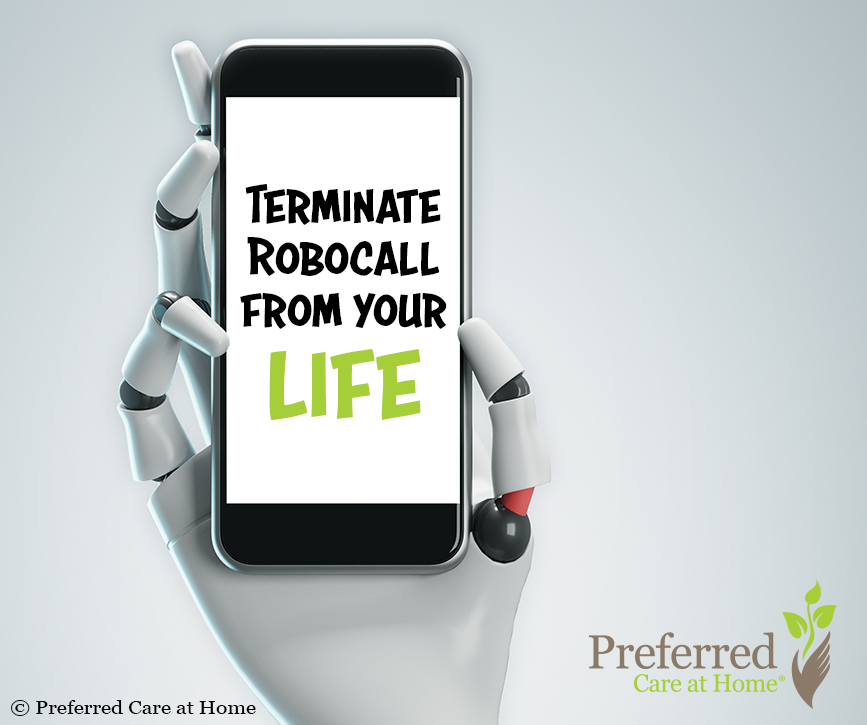Terminate Robocall From Your Life
Published April 29, 2022 by Ashly Luckose, Esq. in Elder Law, Senior Health & Wellness, Senior Safety

“Do not hang up, this is an urgent call.” How many times have you have heard some version of this phone greeting in the last year alone? More importantly, how many of those came in a pre-recorded, robocall?
In recent years, robocalls –those pre-recorded messages delivered by a computerized auto-dialer – have been front and center in phone-based scams. Thousands of unsuspecting people have been tricked into sharing sensitive personal and financial information.
To make matters worse, there is a newer, more potent version of this scam and it uses a technique known as neighbor spoofing.
Broadly speaking, spoofing is when a caller deliberately falsifies the information transmitted to your caller ID display to disguise their identity, according to the Federal Communications Commission (FCC). Neighbor spoofing is when the ID spoof “displays a phone number similar to your own on your caller ID, to increase the likelihood that you will answer the call.”
And it is true, people are more likely to pick up a call if it’s a local number, even when you don’t necessarily recognize it.
So, what are you supposed to do? You can always throw your phone out the window and sever all phone communications forever — or you can start incorporating some of the following tips and guidelines promoted by the FCC.
Tips to avoid robocall neighbor ID spoofing
- Don’t answer calls from unknown numbers. If you answer such a call, hang up immediately.
- If you answer the phone and the caller – or a robocall recording – asks you to hit a button to stop getting the calls, you should just hang up. Scammers often use this trick to identify potential targets.
- Do not respond to any questions, especially those that can be answered with “Yes” or “No.”
- Never give out personal information such as account numbers, Social Security numbers, mother’s maiden names, passwords or other identifying information in response to unexpected calls or if you are at all suspicious.
- If you get an inquiry from someone who says they represent a company or a government agency, hang up and call the phone number on your account statement, in the phone book, or on the company’s or government agency’s website to verify the authenticity of the request. You will usually get a written statement in the mail before you get a phone call from a legitimate source, particularly if the caller is asking for a payment.
- Use caution if you are being pressured for information immediately.
- If you have a voice mail account with your phone service, be sure to set a password for it. Some voicemail services are preset to allow access if you call in from your own phone number. A hacker could spoof your home phone number and gain access to your voice mail if you do not set a password.
- Talk to your phone company about call blocking tools they may have and check into apps that you can download to your mobile device to block unwanted robocalls.
Robocalls are just one kind of scam targeting the public and the elderly in particular. Be sure to check out some others we have highlighted here such as email and lottery scams, the grandparent scam, and the ridiculous senior smuggling scam.
If you have questions about senior home
care services or if you want to start care:
Related Posts

January 27, 2025
Is There a Food Allowance Card for Seniors?
Jody Guerrieri, RN.

January 27, 2025
What Causes Glassy Eyes in the Elderly?
Jody Guerrieri, RN.

January 27, 2025
What Age Is Considered a Senior Citizen?
Jody Guerrieri, RN.
Helping seniors age in place, with dignity & grace.